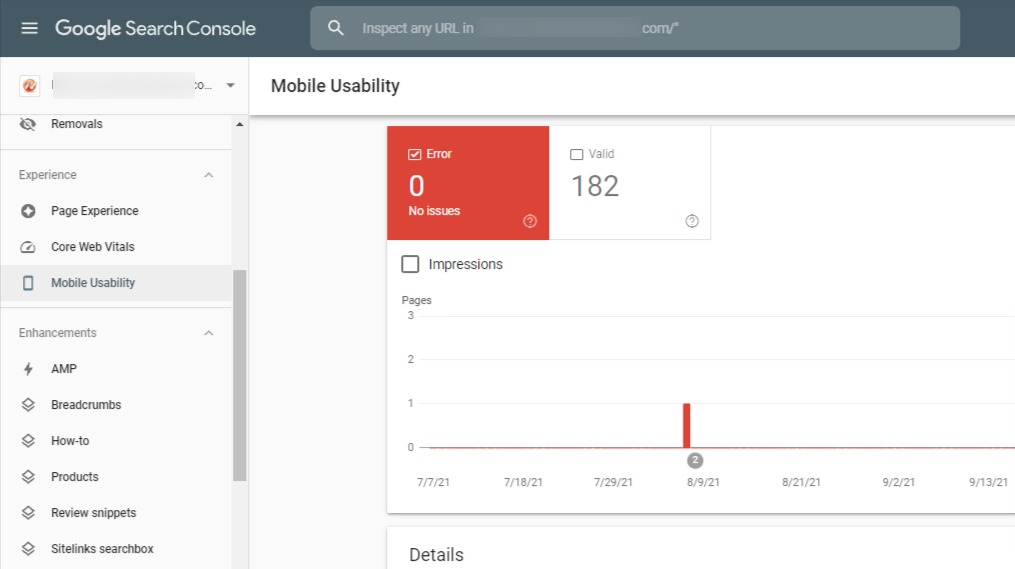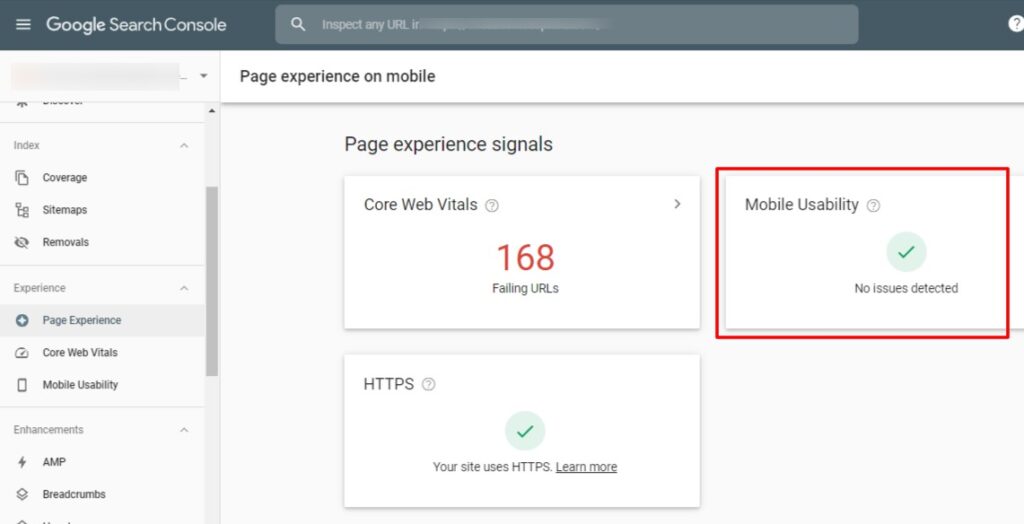Find out why your Google ranking has dropped
Every now and then there is someone saying that the “Website ranking has dropped!” So are you facing a similar situation? In this article, let me explain the reasons why you may be facing a similar situation.
First things first, try and understand the traffic drop. A news site has a different type of traffic compared to that of an affiliate site, an E-commerce website has different sources of traffic compared to that of a food website. Understand which source has tanked and affected the drop in traffic. The normal sources are organic search, paid search(also referred to as PPC), social media, referrals, or direct traffic.
Once you grasp a better understanding of the traffic sources, try to figure out which traffic source is losing traffic or has caused a drop in traffic.
Now there can be many reasons for the drop in traffic, such as:
Your property definition doesn’t match your site URL, Google hasn’t crawled (or recrawled) your site yet, your site is missing, removed, or affected by a manual action, you recently moved your site, technical issues, algorithmic changes, search interest disruption, Google SERP update, Website hacked, Competitors making moves, Lost backlinks, SEM traffic cannibalization, Mobile-first indexing.
Now I will describe the reasons that I mentioned before that can affect your drop in Google ranking alongside their solutions.
1. Your property definition doesn’t match your site URL
Do the Search Console property definition and your site URL match? If your site is http://123abc.com and your Search Console property is defined as https://123abc.com then Mixing up http and https is probably the mistake here and the reason for “missing” search traffic; your traffic might not have dropped, you might just be looking at the wrong Search Console property.
2. Google hasn’t crawled (or recrawled) your site yet
You may have posted a page, or fixed it and then requested a (re)crawl recently, but on the other hand, Google has yet to crawl it. It is expected by many people that Google indexes or re-indexes a page instantly but it may take a week or even more for Google to recrawl the expected site or page. If you’ve submitted a sitemap or requested a URL crawl already then be patient with it. If you have posted a page on your site without telling Google about it, it might take Google even longer to find the desired/particular page, so in that case, you must request a crawl.
3. Your site is missing, removed, or affected by a manual action
Make sure that your site is still in Google Search: If it is a page, search for the exact page URL in Google — www.123abc/123/abc and if it is for a site, do a site search for your site — site:www.123abc.com
If you find out that your page or site is missing from Google, here’s how to know why it may have happened. You may be subjected to manual action or security issues.
Manual Actions: If your site does not go along with Google’s guidelines, a few of your pages or the whole site may be deducted from Google Search results through a Manual Action. You may Check the Manual Actions report here.
Security issues: If your website is affected by some sort of a security threat, Google may alert users before they access your site with warning pages, which may be a reason for the decrease in Search traffic. Check the Security Issues report.
If you have a manual action or security issue, fix them. See if anyone has filed a successful URL removal request on your website. If this may be the case, you’ll have to cancel or deal with the removal of the request to appear in search again.
4. You recently moved your site
Making significant changes to the features of a website that may affect its online visibility and have an impact on SEO is known as Site migration.
Different types of site migration:
- Domain being changed
- Changing the content of the website
- changing the design and layout of the website
- Changes in User interface and user experience
- Changing the CMS(also reffered to as Content Management System)/Platform
- Installing an SSL certificate(migrating from http to https) on the hosting account of website without using ‘301 redirect’
You may also read troubleshooting actions for site moves here:
5. Technical issues
There can be several errors that can prevent Google from crawling, indexing, or providing your pages to users for example availability of the server, fetching of robots.txt, page not found, etc. A point to be noted is that the issues can be site-wide level (for example, your site is down) or page-wide level (for example, a misplaced noindex tag, which would be dependant on Google crawling the page, indicating that there would be a slower drop in traffic).
For solutions to common technical SEO issues read: 15 Common Technical SEO Issues and How to Fix Them
You may also use technical SEO tools for your technical issues these include:
- Screaming Frog
- Google Search Console
- Google Analytics
- WebPagetest
6. Algorithm changes/updates
Google continuously improves how it evaluates content and updates its algorithm accordingly through core updates and other smaller updates might change how some pages have their performance in Google Search results. To stay informed about future updates, subscribe to Google Search News YouTube series or follow Google on Twitter.
You may also read my article about the Google Algorithm Updates to stay updated over here: Google Algorithm updates 2021
7.Search interest disruption
Often changes in user behavior will change the demand for certain searches. It may be because of a new trend, or seasonality throughout the year. What this indicates is that your traffic may be dropping due to external influences.
The loss in organic traffic may be due to loss in interest of your product due to situations going around the world such as a pandemic or it may be just due to seasonal changes.
8. Google SERP update
Google does not put out updates for its algorithms alone. Google can also change its search engine result pages (also referred as SERP) layout by adding several elements which may push down your snippet which was up or grasp more attention than your snippet.
Note that the rank tracker treats featured snippets differently. When a featured snippet appears for a search, some may not even take it into account when reporting the rank while others will.
9. Website being hacked
Once your website is hacked by hackers and they’re “inside,” hackers often infect your website with malicious code and spammy content and links. This is harmful to your rankings. It may or may not be that your website was hacked, but if it gets hacked, you need to have knowledge about it as soon as possible so that you can take action to get back control of your website and turn it back to its original condition. Malicious activity and code are scanned by Google on websites. If they find your website gets hacked, Google will inform you about this through Google Search Console. This check is not foolproof, it takes a few seconds to check Google Search Console to see whether they know about a hack so I recommend always checking this.
A scenario where you open a website’s link and it redirects you somewhere else and not at the desired website is also an example of a hacked website.
10.Competitors making moves
There is a possibility that you did nothing wrong yet you are behind in ranking and it may be because your competition got better. It is rare to have a critical drop in ranking just because of your competitor but investigating the activity of your competitor is still worth it if the drop is as much as few positions.
You may use Rank Tracker‘s SERP History to see how you have been affected by the rankings and how your competitors have been affected by them. If the changes are critical such as witnessing new websites, frequent shifts, then you are most probably experiencing something known as a Google dance, a small period of large SERP volatility due to small algorithm changes. In this case, no actions are required to be performed. But if you notice that many of your are positions being overtaken by a similar few websites, then it’s time for a thorough investigation.
If your competition outranks you across a massive number of keywords, then they have probably implied some site-level enhancements. In this scenario, you may run their site through different tools and take notice if the competitor outperforms you either in technical type optimization or in the size and quality of their backlink profile.
If you come across shifts in a smaller number of keywords, then the culprit is probably on-page SEO. Your competition is most probably having their pages updated one after another, improvements in different parts of their content, optimizing the keywords, etc. If this is the case, visit the pages you are doubtful of, see how they are when compare to pages on your site, you may even borrow optimization ideas.
11.Lost backlinks
Having low quality backlinks can impact your performance in SERPs on the other hand losing high quality backlinks can cause you to have an impact on your performance in SERPs as well. To keep track of and see if you lost any backlinks you may use tools(for example SEO spyglass).
If you’re looking to get back your lost backlinks what you need to do is to get in touch with the webmaster. Now getting back the lost backlink can be easy if you have links with the webmaster if not then your best shot is contacting via Facebook, Twitter or any other social media platform where they may have there contact info available.
12.SEM traffic cannibalization
The SEM traffic is the one that we acquire from paid advertisement whereas the SEO traffic comes from organic search, and sometimes both of these may get in way of one another. Your ads will be given the priority in SERP and have no trouble taking away a noticeworthy size of traffic away from your organic search.
If the keywords from PPC and organic traffic are similar to each other pause your PPC because you do not want to pay for something that you are totally getting for no cost.
13. Mobile-first indexing
Search engines lean towards making the web mobile-friendly. When the question of ranking arrives the mobile friendly websites will always be given more priority but this does not mean in any way that desktop sites are out of the competition
But without any doubt if a mobile-friendly site is missing it may influence ranking of your website a lot alongside the traffic. Let us say for an example your competition has a mobile-friendly site and you don’t your competition will surely outrank you by having a mobile-friendly site.


You may test your site for being mobile-friendly over here: Mobile-Friendly Test
14. Tracking code removed
In case your site gets its tracking code removed, the site will no longer be able to get tracked. This might be one of the reasons why you get a drop in your traffic.

Author
I'm the founder of Salam Experts. Passionate about SEO & web design. I help businesses like yours get found online at Salam Experts.
